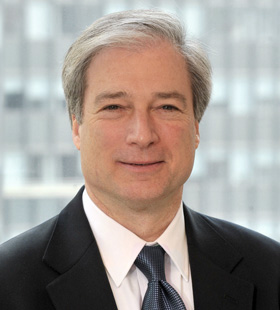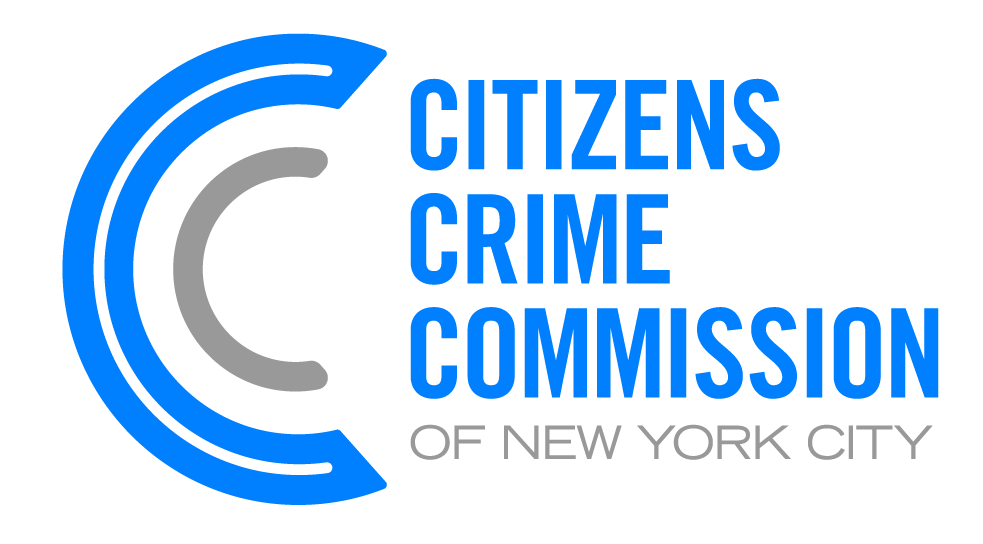President of the CCC
Richard M. Aborn is president of the Citizens Crime Commission of New York City, a non-partisan non-profit organization with multidisciplinary expertise that works to improve public safety through innovation. At the CCC, Mr. Aborn advances strategies to improve the justice system, strengthen gun policies and practices, prevent youth gun violence, and prevent cybercrime.
Under Mr. Aborn's leadership, the CCC has been instrumental in passage of several laws in New York including legislation to expand the use of DNA evidence to convict the guilty and exonerate the innocent, a comprehensive gun violence reduction package, known as the NY SAFE Act, and legislation increasing the penalty for carrying an illegal loaded firearm in the state.

The CCC also works with law enforcement, government agencies, community-based organizations, and academia to implement effective, comprehensive strategies to prevent crime. Mr. Aborn led the design and implementation of New York City's "Project Fast Track," bringing together the New York City Mayor's Office of Criminal Justice, the NYPD, the NY Office of Court Administration, local prosecutors and others to swiftly investigate and prosecute firearm offenders. He also brought the NYPD and FBI together to establish a first-of-its-kind joint strike force tasked with preventing two of the fastest-growing crimes in the city: identity and high-end electronics thefts. In partnership with the FBI, a new NYPD grand larceny unit with 300 officers investigates criminal rings that steal and re-sell smartphones and tablet computers, as well as perpetrators of online financial crimes.
Also under Mr. Aborn's leadership, the CCC launched the Predictive Prevention Lab, an incubator to develop predictive prevention solutions to enhance the effectiveness of crime prevention through behavior change. The CCC partnered with researchers at New York University to develop a program, called E-Responder, rooted in proven conflict resolution strategies, which trains community-based anti-violence professionals to interrupt conflicts on social media before the conflict escalates into real-world violence. In addition, the commission partnered with Carnegie Mellon University and the University of Pittsburgh to create an intelligent tutoring system that builds internet users' resilience to phishing attacks.
Mr. Aborn is frequently relied upon by the media and government officials as an independent and objective expert on criminal justice issues. He has held appointments on the Independent Commission on New York City Criminal Justice and Incarceration Reform, New York State Juvenile Justice Advisory Group, New York State Bar Association's Task Force on Wrongful Convictions, and the transition teams of the New York State Attorney General, NYPD Commissioner, Brooklyn District Attorney, and Bronx District Attorney. And he has provided informational sessions for visitors from around the world who are interested in learning more about effective crime prevention strategies, including representatives from Argentina Ministry of Security; Colombia Ministry of Justice; Denmark Ministry of Justice; United Kingdom Home Office, Ministry of Justice, Northern Ireland Office, Secret Intelligence Service (MI6), Parliament, Police Service of Northern Ireland, London Metropolitan Police, and London Mayor's Office; and the Uruguay Ministry of Interior.
In his role at the CCC, Mr. Aborn draws on his extensive experiences in law and policy. Mr. Aborn began his legal career as an Assistant District Attorney in the Manhattan District Attorney's office where he prosecuted major felonies, including homicides, from 1979 until 1984.
While serving as president of Handgun Control, Inc. from 1992 to 1996 (now the Brady Campaign), the leading gun control advocacy organization in the United States at the time, he was one of the principal strategists behind the passage of the landmark Brady Bill mandating background checks on firearm purchasers and legislation banning assault weapons and large-capacity ammunition magazines. At the same time, Mr. Aborn also served as president of the Center to Prevent Handgun Violence, where he worked with the New York City public school system to develop a first-of-its-kind program to reduce gun injuries as part of the curriculum. During his tenure at the Center, he also established a research division to evaluate and supervise studies evaluating the impact of gun control legislation.
Mr. Aborn has played a central role in several campaigns and investigations. In 1999, Mr. Aborn was commissioned by New York City to conduct an investigation of the New York City Police Department's (NYPD) disciplinary system, as well as its response to civilian complaints of misconduct. This multi-year investigation resulting in numerous recommendations to reduce police misconduct received extensive media coverage and support. Mr. Aborn was also commissioned to investigate the NYPD's disciplinary decisions concerning the officers involved in the fatal shooting of Amadou Diallo, an unarmed individual shot 41 times by police.
As the senior law enforcement advisor to the Democratic candidate for Mayor of New York in 2001, he developed a comprehensive criminal justice policy for the City of New York that provided for greater coordination of governmental agencies in order to reduce crime and recidivism; the use of advance technology for police officers; increased focus on gun violence; and the establishment of a "311" program to better manage government community relations. He also urged much greater cooperation and interaction between city agencies. Known as "silo busting," Mr. Aborn sought to break down the barriers that exist within government hampering greater efficiency.
In addition to his work at the CCC, Mr. Aborn serves as president of CAAS LLC, which advises police departments, criminal justice agencies, corporations and other organizations in the United States, Latin America and Europe on criminal justice policy, violence reduction and Rule of Law issues. He is also one of the managing partners of the international law firm Constantine Cannon and serves on the Board of Directors of several non-profit organizations.
